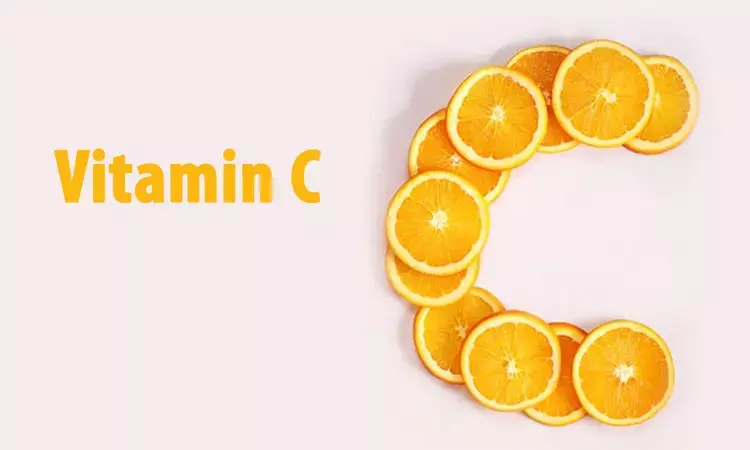- Home
- Medical news & Guidelines
- Anesthesiology
- Cardiology and CTVS
- Critical Care
- Dentistry
- Dermatology
- Diabetes and Endocrinology
- ENT
- Gastroenterology
- Medicine
- Nephrology
- Neurology
- Obstretics-Gynaecology
- Oncology
- Ophthalmology
- Orthopaedics
- Pediatrics-Neonatology
- Psychiatry
- Pulmonology
- Radiology
- Surgery
- Urology
- Laboratory Medicine
- Diet
- Nursing
- Paramedical
- Physiotherapy
- Health news
- Fact Check
- Bone Health Fact Check
- Brain Health Fact Check
- Cancer Related Fact Check
- Child Care Fact Check
- Dental and oral health fact check
- Diabetes and metabolic health fact check
- Diet and Nutrition Fact Check
- Eye and ENT Care Fact Check
- Fitness fact check
- Gut health fact check
- Heart health fact check
- Kidney health fact check
- Medical education fact check
- Men's health fact check
- Respiratory fact check
- Skin and hair care fact check
- Vaccine and Immunization fact check
- Women's health fact check
- AYUSH
- State News
- Andaman and Nicobar Islands
- Andhra Pradesh
- Arunachal Pradesh
- Assam
- Bihar
- Chandigarh
- Chattisgarh
- Dadra and Nagar Haveli
- Daman and Diu
- Delhi
- Goa
- Gujarat
- Haryana
- Himachal Pradesh
- Jammu & Kashmir
- Jharkhand
- Karnataka
- Kerala
- Ladakh
- Lakshadweep
- Madhya Pradesh
- Maharashtra
- Manipur
- Meghalaya
- Mizoram
- Nagaland
- Odisha
- Puducherry
- Punjab
- Rajasthan
- Sikkim
- Tamil Nadu
- Telangana
- Tripura
- Uttar Pradesh
- Uttrakhand
- West Bengal
- Medical Education
- Industry
Vitamin C may prevent skeletal muscle mass loss in older people: Study

Free radicals may contribute to the destruction of muscle and speed up age-related decline of muscle mass.Vitamin C consumption may combat this kind of muscle loss due to its antioxidant action.
Researchers at University of East Anglia (UEA) have found in a new research that Vitamin C may improve skeletal muscle mass in older people.Vitamin C found in citrus fruits, berries and vegetables could be the key to better muscles in later life . The study has been published in the Journal of Nutrition.
This is important because people tend to lose skeletal muscle mass as they get older - leading to sarcopenia , frailty and reduced quality of life.
Lead researcher Prof Ailsa Welch, from UEA's Norwich Medical School said: "As people age, they lose skeletal muscle mass and strength.
"People over 50 lose up to one per cent of their skeletal muscle mass each year, and this loss is thought to affect more than 50 million people worldwide."
"It's a big problem, because it can lead to frailty and other poor outcomes such as sarcopenia, physical disability, type-2 diabetes, reduced quality of life and death."
"We know that Vitamin C consumption is linked with skeletal muscle mass. It helps defend the cells and tissues that make up the body from potentially harmful free radical substances. Unopposed these free radicals can contribute to the destruction of muscle, thus speeding up age-related decline."
"But until now, few studies have investigated the importance of Vitamin C intake for older people. We wanted to find out whether people eating more Vitamin C had more muscle mass than other people."
The research team studied data from more than 13,000 people aged between 42-82 years, who are taking part in the EPIC (European Prospective Investigation into Cancer and Nutrition) Norfolk Study.
They calculated their skeletal muscle mass and analysed their vitamin C intakes from a seven-day food diary. They also examined the amount of vitamin C in their blood.
Dr Richard Hayhoe, also from UEA's Norwich Medical School, said: "We studied a large sample of older Norfolk residents and found that people with the highest amounts of vitamin C in their diet or blood had the greatest estimated skeletal muscle mass, compared to those with the lowest amounts.
"We are very excited by our findings as they suggest that dietary vitamin C is important for muscle health in older men and women and may be useful for preventing age-related muscle loss.
"This is particularly significant as Vitamin C is readily available in fruits and vegetables, or supplements, so improving intake of this vitamin is relatively straightforward.
"We found that nearly 60 per cent of men and 50 per cent of women participants were not consuming as much Vitamin C as they should, according to the European Food Safety Agency recommendations.
"We're not talking about people needing mega-doses. Eating a citrus fruit, such as an orange, each day and having a vegetable side to a meal will be sufficient for most people."
For further reference log on to:
Lower dietary and circulating vitamin C in middle and older aged men and women are associated with lower estimated skeletal muscle mass' published in the Journal of Nutrition .
Dr Kamal Kant Kohli-MBBS, DTCD- a chest specialist with more than 30 years of practice and a flair for writing clinical articles, Dr Kamal Kant Kohli joined Medical Dialogues as a Chief Editor of Medical News. Besides writing articles, as an editor, he proofreads and verifies all the medical content published on Medical Dialogues including those coming from journals, studies,medical conferences,guidelines etc. Email: drkohli@medicaldialogues.in. Contact no. 011-43720751


